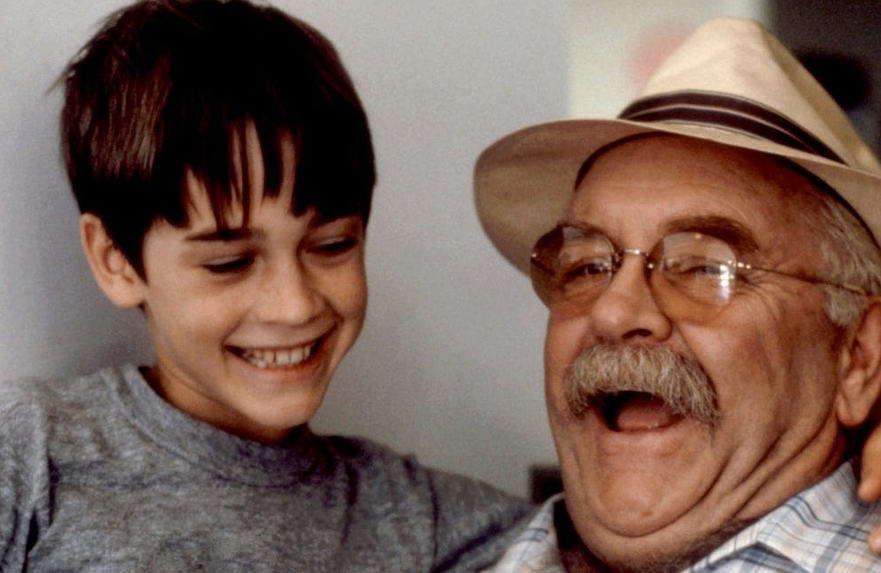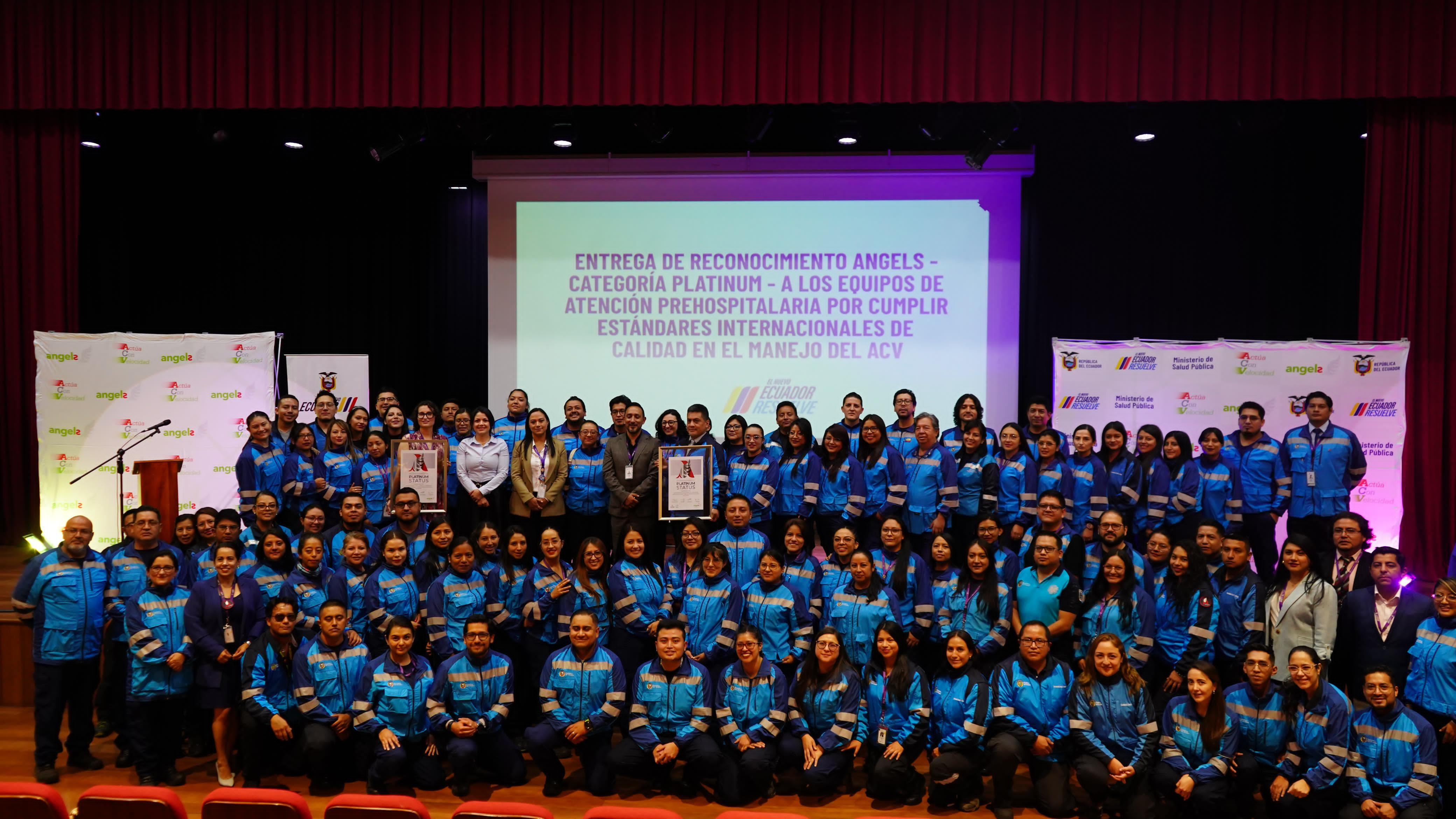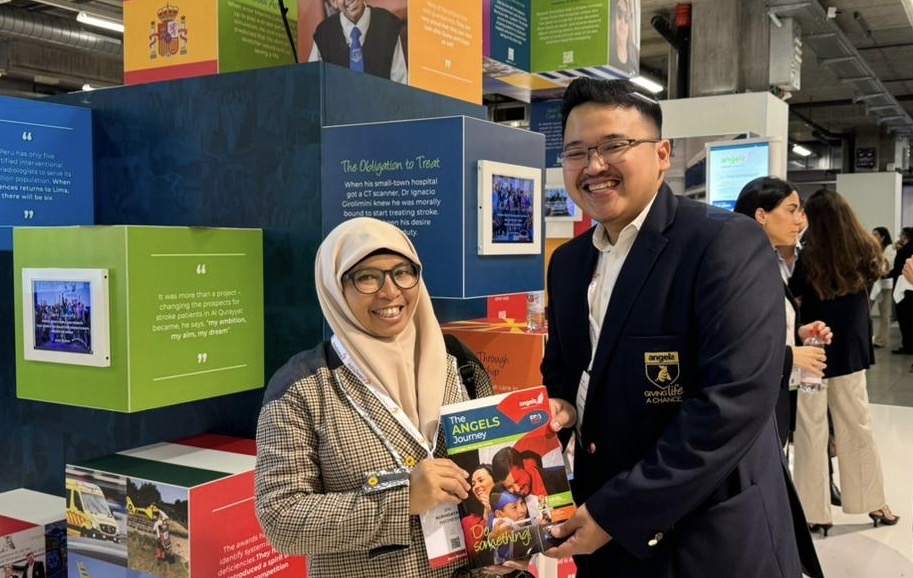
Празднование Всемирного дня борьбы с инсультом в Университете медицины и фармации города Хошимин привлекло некоторых ведущих специалистов страны, которые делились ценными знаниями о стратегии профилактики инсульт и реагирования на экстренная ситуации с представителями общественности.
инсультное отделение при HCMC медицинского и аптечного университета на сегодняшний день получило три награды WSO Angels за выдающиеся достижения в уход за пациентом с инсультом. Время от время от поступления до введения препарата составляет от 25 до 28 минут, что намного превышает международный стандарт 60 минут.
На мероприятии по повышению осведомленности населения 19 октября выдающиеся докладчики, включая д-ра Нгуен Ба Танг, д-ра Пэм Ти Нгока Кьюэна, д-ра Дао Дюя Хоа и д-ра Трана Кок Туана, привлекли на подиуме знания о жизненном заболевании, которое поражает около 200 000 человек. Вьетнамский в год.

Справа налево: Г-жа Тран Нгуен Angels Вьетнам, д-р Кьюэн Пэм, д-р Туан Тран, д-р Б Танг Нгуен, д-р Хоа Дао, г-жа Уен Вуон Angels Вьетнам.
Д-р Нгуен Ба Танг, руководитель Центра нейробиологии при HCMC медицинского и фармацевтического университета, объяснил, что инсульт был критическим заболеванием, требующим экстренная помощи. Он сказал, что "уже минута без немедленного медицинского вмешательства приводит к необратимому повреждению миллионов клеток головного мозга. Следовательно, время является наиболее важным фактором в лечение, терапия инсульт, определяющим выживаемость и способность пациент восстанавливаться.
Время имеет важное значение при лечение, терапия инсульт. Чем раньше пациент с инсультом получит лечение, тем выше вероятность выживания и выздоровления. Несмотря на то, что временные рамки лечение, терапия расширяются, раннее вмешательство остается критическим.
Когда у человека возникают симптомы инсульт, необходима немедленная медицинская помощь в больнице, способной перенести инсульт. Во Вьетнаме наиболее эффективным способом обеспечения своевременного лечение, терапия является звонок 115 для экстренная медицинской помощи. У пациентов с инсульт и тромбами быстрое вмешательство, например, внутривенное введение лекарственных препаратов и эндоваскулярные процедуры для восстановления кровотока, может значительно улучшить исходы.
Наряду с своевременным оказанием экстренная помощи и лечение, терапия, профилактика инсульт была жизненно важной, говорит д-р Пэм Тхи Нгос Кьюэн, старший специалист II в области неврологии. Д-р Квине подчеркивает важность контроля таких факторов риска, как гипертензия, сахарный диабет, атеросклероз, ожирение и курение. По ее словам, принимая здоровый образ жизни со сбалансированной диетой, регулярными физическими упражнениями и плановыми обследованиями здоровья, люди могут значительно снизить риск инсульт.

Через десять дней в день Всемирного инсульта 29 октября 200 человек заполнили лобби HCMC медицинского и фармацевтического университетов для проведения другого мероприятия по повышению осведомленности населения, проводимого Инициатива Angels и газетой Тайн Ниен. В этом случае участники получили ценную информацию об использовании аббревиатуры М.О.З.Г. 4,5 для распознавания признаков инсульт, о важности своевременного ответа в течение золотого часа и о том, как предотвратить инсульт. Кроме того, участники получали прямые консультации по поводу инсульт от специалистов по инсульт.
Это мероприятие было транслировано в режиме реального времени на фамилии больницы, где оно получило более 40 000 проекций. Она также охватила крупную аудиторию с помощью трех транслируемых в прямом эфире эпизодов на платформах Thanh Nien, включая их фэнш-страницу, канал YouTube, TikTok и Thanh Nien Online.
В предстоящем году Angels Вьетнам продолжит распространять сообщение Всемирная организация по борьбе с инсультом, “Together we are be greater than инсульт”, посредством серии мероприятий по повышению осведомленности населения в партнерстве с группой больниц Xuyen A.




